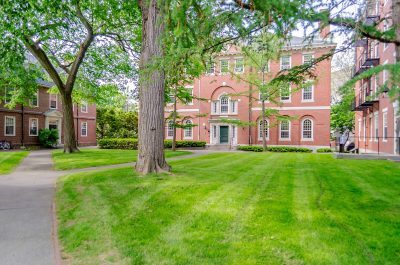Updated: November 16, 2021
Congratulations! You’re among the select few (i.e., roughly 20%) of Harvard Business School applicants invited to have an admissions interview. The HBS Admissions Board has analyzed your application, compared you to your peers, and believes you’re qualified for a coveted seat in the incoming MBA class.
You’ve won that battle, but the war is far from over. The next and final step is actually two steps – an in-person interview and a post-interview “reflection” essay. Considering the uniqueness of Harvard’s model, it’s essential for serious applicants to plan and prepare in advance, thoughtfully and thoroughly. We have over three decades of successfully advising thousands of HBS applicants and have observed these common challenges:
7 Key Observations from HBS Application Experts
Extra pressure in the MBA application process
As mentioned above, by the time you interview, your “qualifications” for admission are no longer in question. Now is the moment to demonstrate how effective you can be in a real-time dialogue with a probing, poker-faced – sometimes even pushy – “interrogator.” In addition to the interviewer, there’s also an official observer in the room, watching, listening and taking notes. So, staying calm, cool and focused is absolutely essential for interviewees. Easier said than done? Planning and practice are the best ways to rise above this challenge.
Performance assessments in a case discussion
Harvard’s famed case-study method of learning demands that students demonstrate a range of sometimes contradictory skills: planning and spontaneity, listening and speaking, questioning and advocating, etc. HBS interviewers are the “border guards” who ensure that no one gets admitted who doesn’t demonstrate these essential skills during the interview. The good news is that effectively discussing a case is a mindset that interviewees can learn in advance.
More focus on your professional profile than academic
Transcript and test scores are common denominators that confirm an applicant’s competence to handle the MBA curriculum. A more differentiated and revealing component of a candidacy is past, present and future professional priorities. In addition, Harvard interviewers may press you to confirm that you truly understand – and can help others understand – your job, industry and market. So, doing some homework now will go a long way later.
Exceptional levels of self-awareness and authenticity expected
Harvard probes, digs and drills down during the interview to get past superficialities and discover the genuine person behind the application. They already know what you’ve accomplished, so now they want to hear what you learned along the way and how it’s helped you grow into who you are and who you will become. They want to understand what makes you tick. Scripted and memorized content simply will not work. Relevant, actionable frameworks and outlines are the way to go.
Listening for the “why” more than “how”
Examining the motivation that has informed and influenced major professional, personal and academic decisions is of great interest to HBS interviewers. While some other business schools emphasize the tactics and mechanics of what you’ve done, Harvard really wants to grasp the reasons for and expectations behind those choices. It can take some time to recall and revisit what you were thinking and feeling at those times, so make it part of your interview preparation.
Expects confidence from MBA candidates, but abhors arrogance
Succeeding in case discussions and bonding with classmates are high priorities at Harvard. These behaviors require verbal, interpersonal and attitudinal strengths in order to engage, rather than distance, those around you. So, interviewers look for tell-tale signs of egotism or conceit that will eliminate even the most qualified candidate from further consideration. This can be difficult for many interviewees to detect and eliminate on their own, so get some objective feedback from a trusted source.
MBA application decisions come early and firmly
In many business encounters, first impressions determine the ultimate outcome and rarely reversed. This is also true for Harvard admissions interviews. Successful applicants are those who establish a positive presence early in the interview, then confirm and reinforce it during the remaining time and through the post-interview essay. Reserving the “good stuff” in hopes of ending the interview process with a bang can be a fatal mistake. Lead with your strengths.With two former Harvard MBA admissions officers and over a dozen Harvard MBA grads on our consulting team, no one knows HBS – and HBS interviews – better than The MBA Exchange. Our interviewing experience, expertise and proprietary approach can help you prep and practice for success on the big day. We’re eager to hear from you, learn about your candidacy, and share our proven strategies and customized tactics. HBS interviewees, The MBA Exchange is here for you!





